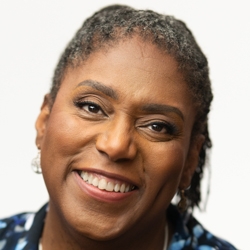

Search Results: privilege
-
For many people, attempting to connect with others across differences can feel akin to walking through a minefield. With humility, tenderness, and courage, Roxy challenges your perspectives and encourages you to open your heart and mind. Roxy uses concrete examples and visual tools to illustrate complex concepts.
-
If we're to have a better future, our biggest task will be to reexamine what the police are, their place in the system, and more. Police violence exists by systemic design. The myths of where the problems and symptoms lie with the police, capitalism, laws, government, citizens, class and racism --plus the relationship between all these-- is what keeps oppression ongoing on a mass scale. For change to happen, we'll need to find systemic leverage points, and use privilege to benefit those without it. Read on for more.
-
Much like other asymmetric relationships (such as therapist and client), there are complications related to power dynamics that can arise with any NVC trainer having sex with a participant. For one, there's (counter)transference. And there's potential for things that may not move outside this asymmetric relationship -- such as projections where the participant, and/or the trainer, is guided by un-healed pain of their "inner child".
-
Even leaders we admire may exhibit behaviors that could be labeled as abusive, at least slightly. This includes not treating followers as equals, using charm, and hiding or twisting truth. In such scenarios a key reason for this is loneliness. If we're using our work and position primarily to gain for appreciation, acknowledgement, and acceptance then we need to examine our own loneliness. We need feedback to keep such conduct in check.
-
Itzel Hayward and Kathy Simon's course is designed to help you step into your power and create a more just world while staying aligned with compassion and empathy.
Using practices and insights based in Nonviolent Communication, this five-session series explores how to challenge racist words and ideas in ways that are most likely to encourage others to openly reflect on their beliefs and behavior. This is an important step in making real change.
You will come away with an increased ability to:
- Stay grounded in conversations that can be painful and upsetting
- Respond meaningfully to perspectives that are different from your own
- Find words to express clearly and passionately why it matters to transform social systems
-
In this excerpt from Roxy Manning's 2019 Social Change session at the NVCfest, she explores the application of Nonviolent Communication (NVC) to address both immediate conflicts and broader systemic issues. She emphasizes the importance of intervening at multiple levels, from stopping harmful behavior in the moment to driving long-term societal change.
-
Want to increase diversity, plus improve group dynamics and group functioning? There are things you can do to make NVC settings more welcoming to people of color. Learn more about how to use NVC; attend to impact; help the community understand and demonstrate more awareness; factor in historical context; engage; create a more inclusive climate; and more!
-
When someone's in immense pain and uses words that are hard to hear, see if you can bring in as much attention and compassion as you would to someone who was cut with a sword. Focusing on what's important to them, and not so much on how it was said. This may support greater understanding and healing. Otherwise, we risk prioritizing needs, norms, and inequities of the dominant culture, over caring for people who bear the invisible brunt of such norms.
-
If we are in the dominant group, intervening to prevent violence or an "ouch" is a way to ally with marginalized folks. We can intervene to meet their needs, rather than our own. In other words, we can intervene without putting our experience at center stage. To that end, here are six ways to ask if an intervention is welcome.
-
How much money to pay? And how much money to ask for? The supply and demand logic basically say that we ask for the most that “the market can absorb” and pay “the least that we can get away with.” We can instead, we can engage in experiments that focus on connecting to and satisfying needs. We can also engage with our varying degrees of access to resources within the existing economy and consider how we want to make choices about resources, especially when we have access to power.
-
We can create processes that encourage resources (particularly money) to flow to where they are most needed. Engaging in "money piles" is one new way that can refocus conversations on real, practical problems to solve -- rather than ideological or abstract discussions about who "earned", "deserved", worked "harder", or merits more. It can tilt conversations based on transaction and obligation towards care and relationship. Read on for three examples that further illustrate how this new way of operating may even bring us closer to the type of world we all want to live in.
-
Our ability to reduce our reliance on money, or even exit the logic of money and exchange in our own thinking, is limited by the degree of trust we have that our needs will be met without it. The more we can enter into sufficient trust, the more we can enter into a web of sharing resources -- borne from a place of love. Read on for more.
-
While so many of us know how close we are to the edge of global catastrophe and want change, what makes the existing global system continue to function with our ongoing participation? Read on for more on the challenges and path towards learning to steward life and all the resources of this one planet for the benefit of all.
-
This pandemic is an immense opportunity, and a dire catastrophe in the making. It’s a crisis within many planetary crises — during which, our habits as individuals, and as a collective, are challenged because they don’t sustain us. Now we are pushed to respond freshly and join forces in ways that seemed impossible before.
-
Giving feedback across a differences in culture, race, and power isn't something that we have to do -- but we can choose to do it for our own liberation, if we want. And if we choose that path, impact delivered well can invite caring for all needs and increase capacity to learn. This is the exacting, rigorous work of speaking about impact without attributing anything to the person whose actions resulted in the impact. Read on for part 1 of 2.
-
If we are to transform the existing social order, and shift to a mode of liberation for all, we'll need to look at our own participation in it. This includes how much we are able to focus on keeping our hearts open; speak to impact without attributing intention; and retain a humility that includes our systemic context. Read on for "how to" when we are in a position of less power.
-
In treating everyone the same, we perpetuate inequities. If we want NVC consciousness to spread globally, it's crucial to acknowledge how various demographics are have varying capacities, and are differentially perceived, treated and impacted. Modifying our NVC teachings can increase equity and reduce the frequent judgement, disbelief, denial, insistence, non-resonance and re-marginalization that so many experience in NVC circles.
-
As we head towards impending collapse the relative ease, comfort and freedom of the global north will be harder to maintain. Because of growing anxiety including from people with systemic power, we can anticipate increasing attempts at authoritarian control over the population. We can see what's occurring now as dry run practice for what's coming soon. What may help us: finding choice, knowing when to choose death, and walking towards community and life.
-
How do you navigate tension around honoring all aspects of your experience, as you express yourself within your community, and seek to take action that supports your vision for yourself and your people? How do you attend to your self-determination while honoring others’ path? Read on for an example of how the authors navigated this in response to tensions in NVC trainer community that included requests for her to self silence.
-
Even groups and organizations with noblest visions can slide into cult-like swamps. The reasons that bring people together are irrelevant; whether it's politics, spirituality, activism, art… a hidden hierarchy, plus dominance and submission dynamic can sprout, and beliefs that “we, our leader, and our path is better than others, we have all the answers”. As a member it can be hard to see. Here are signs of cult mentality and ways to assess.

Quick Links
Subscription Preferences
Stay In Touch!
Looking for ways to keep up with NVC Academy news, get special offers, free resources, or words of inspiration? Here are five ways to stay engaged:














